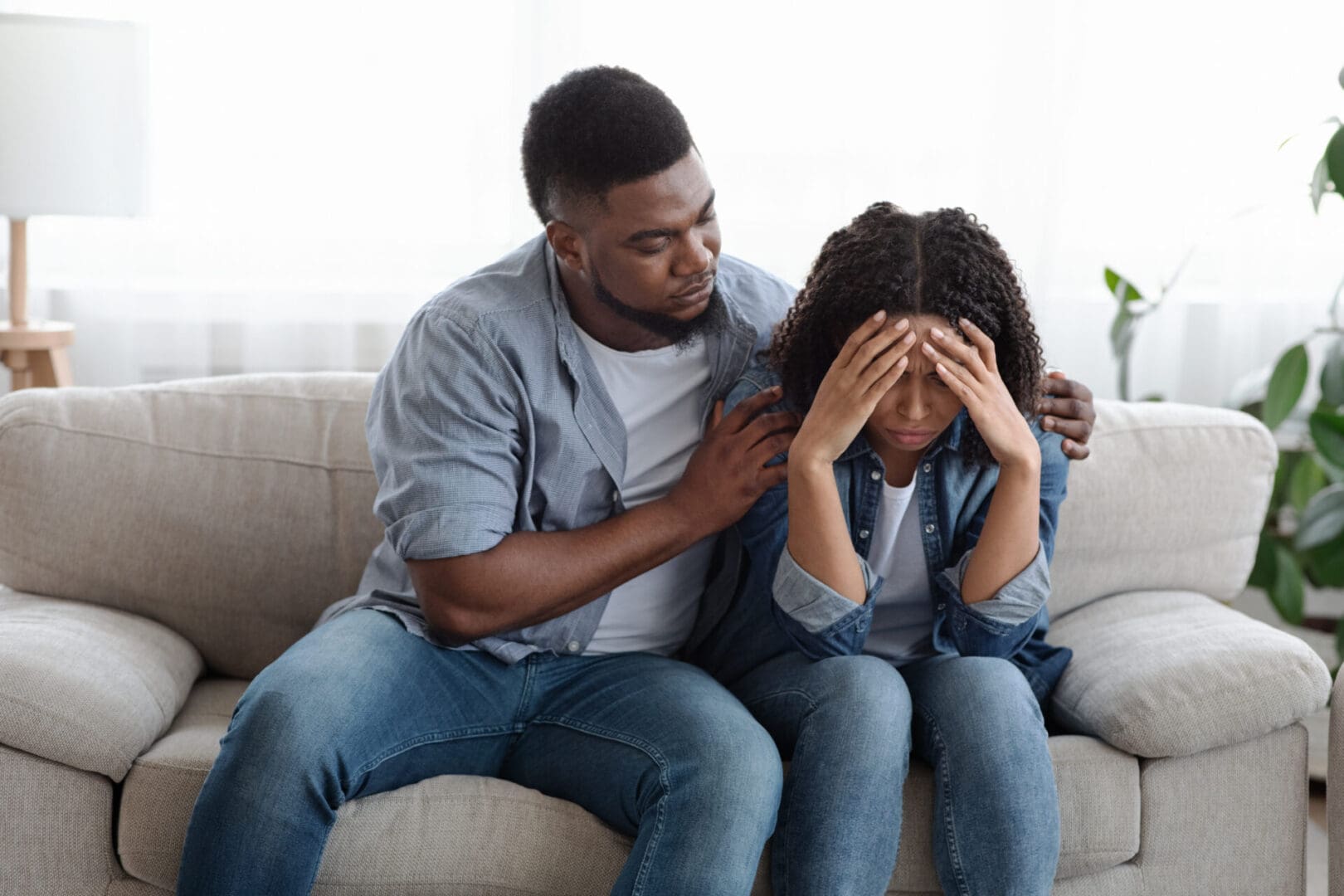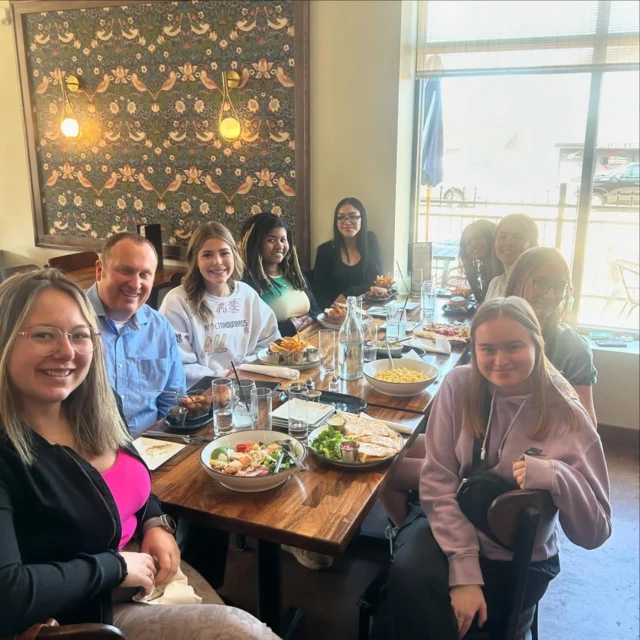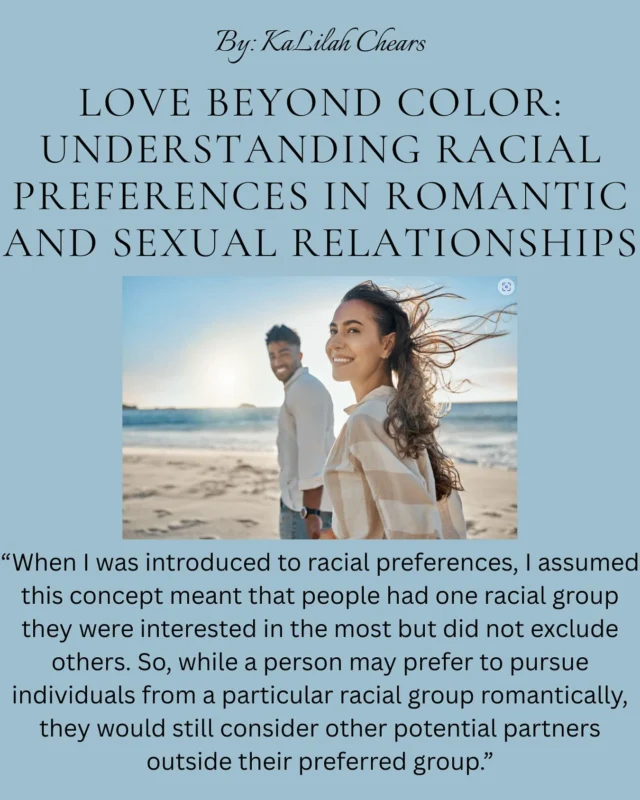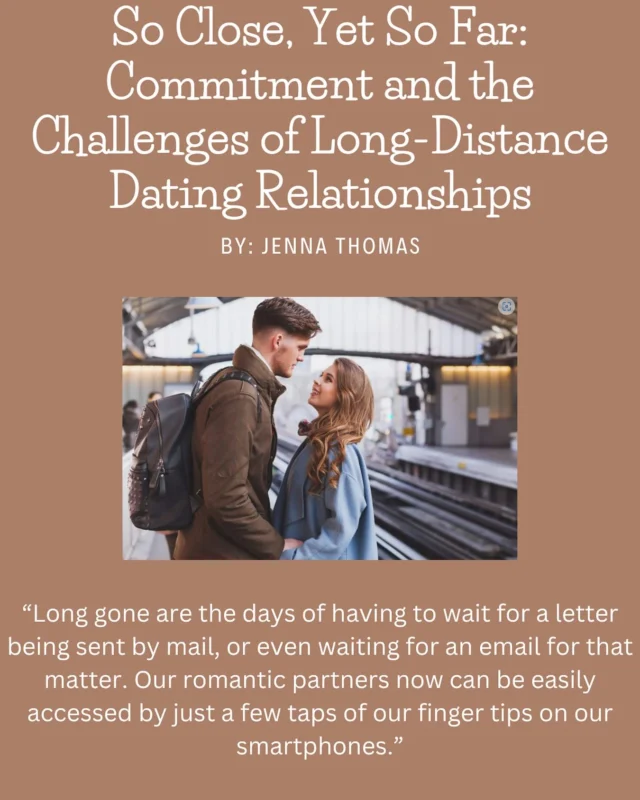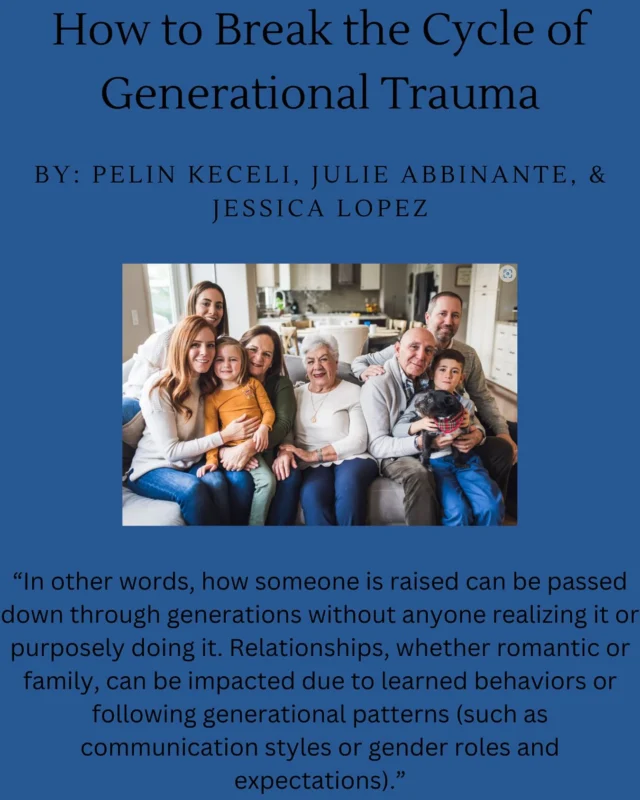Going into any new relationship can be pretty scary. But have you ever thought about what going into a new relationship may look like for someone who has gone through trauma in a past relationship? Whether that trauma was related to domestic violence, sexual abuse, or emotional abuse, it can be a challenging path to start a chapter of your life by meeting a new person after you are so used to being treated a certain way in the past. But, no matter how your past relationship may leave you feeling, you can still be strong and resilient. There are still many partners in the world that you can choose that will start a new, healthy relationship with you, whether you have been through trauma or not.
What is Trauma?
Trauma can happen to anyone. Our friends, family, or neighbors. Almost everyone during the course of their lives has probably had something traumatic happen to them. Whether it was a car accident, going to war, or what I am writing about today, a toxic relationship. According to the American Psychological Association, trauma is an emotional response to a terrible event like an accident, rape, or natural disaster. In addition, there can be long-term reactions, such as unpredictable emotions, flashbacks, strained relationships, and even physical symptoms like headaches or nausea.
After my last relationship ended, I sought help the day after the phone call break-up. I saw both a psychiatrist and a therapist. I was diagnosed with Post Traumatic Stress Disorder (PTSD) based on the DSM-5 criteria. What helped me the most was figuring out why I could have developed PTSD. I thought what I experienced in my relationship was normal. But I was utterly wrong. After sitting down with Title IX on campus, I learned I had experienced both sexual assault and intimate partner violence (it was not necessarily physical, but more emotional abuse). I say I experienced instead of being victim or survivor because I don’t feel like either of those terms. I feel saying victim makes me feel weak, and survivor makes me feel like I powered through something I couldn’t have. Knowing the type of person I was before this relationship, I knew I would get through this. It would just take some time. But, I would like to note it took me taking a Domestic Violence and Trauma in the Family course and speaking to Title IX on my college campus to realize something, which was that it wasn’t just sexual assault I faced. It was rape.
The first thing I turned to after I was diagnosed was antidepressants. After being in and out of the ER with multiple UTIs, being told “you’re fine” any time I experienced pain, and being told that crying made me a victim and that my family didn’t care about me the way he did anymore, I felt alone. The most important thing I remember from this time was feeling numb. I didn’t feel happy about something like Christmas anymore. I had started to hate being touched or hugged, I faced suicidal ideation, and all I wanted was to be alone. I ended up stopping therapy after two weeks. This is because I was so used to my feelings being swept under the rug and not heard. I felt no one would have cared if I mentioned the sexual abuse or the domestic violence. I felt embarrassed and ashamed for letting these things happen to me. According to Timblin and Hassija (2022) trauma-related shame refers to negative evaluations of self, feelings of worthlessness and powerlessness, self-scrutiny, self-condemnation, and the behavior tendency to hide and withdraw from others. As discussed by these researchers this is an emotional reaction frequently experienced by sexual assault survivors (Timblin & Hassija, 2022). I felt so much shame in myself I struggled to hang out with my family until I finally had the courage to tell my parents this past year about what happened to me. I was so worried they would express so much shame on me for losing my virginity and allowing me to have a guy treat me the way he did. But instead, they provided a lot of warmth and comfort. It took some time, but they helped me get into a new therapist.
My biggest question after getting off my antidepressants and seeking out proper therapy was what the long-term effects would be for me. Since any medication can have side effects, even antidepressants. For me, it mainly was increased heart rate issues. I was able to get it maintained, but I also feel my face turn red whenever I try to speak publicly or in front of a class. I had never experienced this kind of anxiety. But I think it is essential for people to ask about long-term effects before taking antidepressants. For me, antidepressants were my way of hiding from processing what happened. I grew up in a household where I wouldn’t say I liked to face my problems head-on. So this was an obstacle I wasn’t ready to face immediately, which is okay. Everyone moves at their own pace.
The Cycle of Violence
Something I find essential to take a look at when evaluating trauma based on past relationships is the Cycle of Violence. The Cycle of Violence refers to repeated and dangerous acts of violence as a circular pattern. The cycle consists of three phases. The first phase is acute battering. This is when the battering incident occurs. Such as hitting a significant other or yelling at them. The second phase is the honeymoon phase. This consists of the batterer asking for forgiveness and promising the incident won’t happen again. This phase can also consist of gift-giving. For example, a partner may get you flowers or something (sometimes very expensive), so you can forgive them for what they did. The third phase is tension building. This phase relates more to the anger, blaming, and arguing that occur. Usually, the perpetrator, in this instance, would blame the victim. According to the textbook I used in one of my classes, victims have “unique knowledge of their abuser’s personal traits, relationship patterns, and cycles of violence,” so their perceptions are valuable in predicting future risk (Miller-Perrin et al., 2020, p. 273).
In my past relationship, I cannot necessarily remember too much about the intimate partner violence portions. It is like little snip-its of what happened since I feel my memory is distorted. In the high acclaimed book The Body Keeps the Score, Dr. van der Kolk describes how people with PTSD are most likely to dissociate, as they cannot distinguish the past from the present. For me personally, I think my memory is distorted because my brain wants to block the memories. So I dissociate whenever I am asked to think about the parts of domestic violence. This is why, when I read the book, I was fascinated by how connected I felt to it. But I do remember that my therapist had given me this cycle. I remember pointing out the specific stages with her and talking about how I had experienced each one. I remember specifically stages two and three. My partner would apologize for what he did and then blame me and say I needed to find whatever perspective it took to see his side. Never once do I think he thought about how much of an impact his yelling would leave on me.
Constant Fight or Flight Response
One of the most common things we hear about in new relationships after trauma is the fight, flight, or freeze response. I read about this in one of my books for my Trauma and Domestic Violence in the Family class. After trauma, the world is experienced with a different nervous system that has an altered perception of risk and safety. The author also mentions that we turn to social engagement whenever we feel threatened. But if no one comes to our aid, or we are in immediate danger, we revert to a primitive way to survive: fight or flight. (van der Kolk, 2015). In recent years many researchers have also started talking about a third stress response called freezing. This is why having a social network is essential. The social network effect refers to the idea that network approval for one’s relationship boosts positive relationship outcomes, whereas disapproval can lead to relationship termination. Research indicates that ongoing positive support of the relationship from one’s own and one’s partner’s social networks is linked to feelings of love and commitment, relationship satisfaction, and relationship stability. These will lower the risk of a constant fight or flight response (Murphy et al., 2020).
Since that trauma, I have had one other partner since then. When I met that partner, I remember my anxiety. If you read my last blog post, How Anxiety Impacts Relationships, you will learn how my anxiety was perceived in my previous relationship. So when I met that new partner at the coffee shop to meet up for the first time, I initially thought he was meeting me to talk about an organization I was in that interested him. But once he asked about my family life and what I liked to do outside of school, I knew it was going in a different direction. My fight or flight instantly kicked in. My mind started racing with questions like, “Would this be the guy who actually loves me and would care for me?” “Would I know the warning signs if this relationship got toxic?”, “Is he just going to use me for sex like other guys?”, “Would he see my trauma as too much?”. I remember being very short-spoken when I met him, as I didn’t know if he was someone I could trust. This was because before I met him, I had met a few guys over bumble, and many thought my trauma was “too much to handle.” I had also met a guy from his fraternity he was in whom I felt I was getting along with, only to find that guy was talking to other girls.
I occasionally feel my fight or flight kick in on my college campus. I have seen my ex-partner on campus a few times. It has undoubtedly stopped me in my tracks. Dr. van der Kolk (2015) discussed how images and sounds can be stored in the mind. But once these sensations come to the surface, they activate the alarm system (known as fight or flight), which causes a person to react as if the traumatizing event was happening just then (van der Kolk, 2015). My PTSD kicks in, reminding me of all the horrible things I don’t want to think about, especially worrying if he will come to talk to me. But, I have come to not care about those thoughts. It has taken me a long time to learn that, but I am happy I am away from him and in a much safer place. I have done my best to realize my campus is big and that I have people to support me when I need it. I also face anxiety shivers any time I have a possibly intense conversation. The person may not even be mad at me. It could be simply trying to make plans and realizing a date doesn’t work out to hang out that I start shaking. I get constant fears related to my past relationship that if I do the slightest thing wrong, a potential future partner will yell at me and possibly even leave me. But I feel in these moments, it is important that I remember a caring and loving partner will not leave me over something simple, such as not having a specific date that we can hang out during the week. I constantly face trauma-shame that I still have fears of this happening to me. I also still get the fear of crying in front of anyone. I feel so much shame when I do, but my family, current therapist, and friends have been supportive in reminding me to cry when I need to, as it is not good to hold it in and that it is not shameful to cry.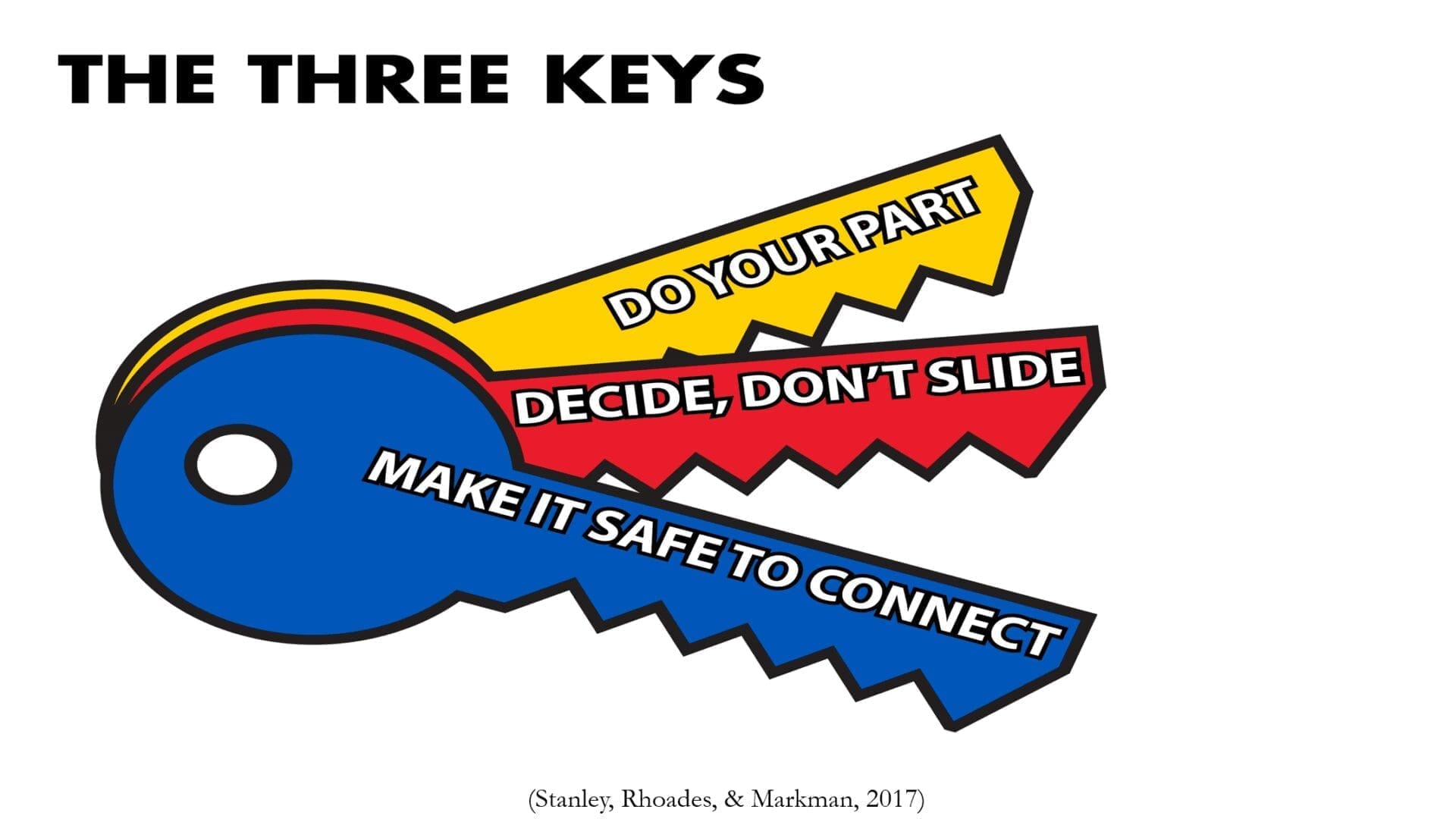
The Three Keys to a Successful Relationship
I also want to talk about The Three Keys to a successful relationship. The Three Keys were developed by Drs. Scott Stanley, Howard Markman, and Galena Rhoades. Recently Dr. Stanley and Dr. Markman published an important article called Helping Couples in the Shadow of COVID-19 (click the link for the full article) in which they discuss The Three Keys. COVID-19 certainly presented some unique challenges to couple and family relationships. You can see a video of Stanley and Markman discussing the The Three Keys below.
The first key is to do your part. This requires you to stay focused and act on things within your control. The second key is to decide, don’t slide. We have previously discussed at length on this blog (e.g., here and here) about the concept of sliding versus deciding and how deciding this can lead to healthier outcomes in your relationships. The third key is to make it safe to connect. A healthy relationship should have physical, emotional, and commitment safety.
Here are links to three excellent videos by Dr. Kara Shade discussing The Three Keys:
- Do Your Part (click link)
- Decide Don’t Slide (click link)
- Make It Safe To Connect (click link)
It is essential to know that just because you were in one toxic relationship does not mean you are doomed to go into another one. If you catch early on the warning signs or “red flags” in your past relationship, you will more than likely know what not to do next time! It is okay if you didn’t see the red flags while in the relationship. It is a more common thing to experience that. But now that you have some insightful tips, you should have an easier time detecting whether the man or woman you’re talking to is someone you see a healthy relationship with.
Whenever I see a potential partner, try to envision myself being able to see the three keys somewhere in our friendship before I decide to start dating this person. In my past relationship, and I feel with most traumatic relationships, one or more keys are missing. If you notice one of these keys are missing, I advise you have a conversation early on with your partner about how you realize you are “sliding” into decisions, or that you don’t feel like you feel safe around them. If you don’t feel safe around your partner, that relationship simply won’t work, or even worse, put you at higher risk for abuse.
Finding Healing and Becoming Resilient
What I have done to find healing and to be resilient after the trauma I have faced is by taking the time to take care of myself. I do this through working out, eating healthier, and writing in my journal during my free time. I also went to therapy for about three months, and I found it very beneficial to talk to an outside, unbiased source. That taught me a lot about how to heal without closure and learn that I can be the best partner I can be in my future relationships and how to improve my relationships with my friends and family. I also have a small group of friends I am close with that I feel I can go to talk to about anything. Having a smaller group of friends is easier for me to manage, and I recommend even having 2-3 friends you can talk to about anything. I spend a lot more time with my family than I used to. By being closely connected to them, I have noticed a significant boost in my self-esteem and realized how loved I am. I choose not to let my past relationship define the new ones I can potentially be in. I learned in therapy how to differentiate the past from the present. Things that happened to me are in the past, but they are not my future. I want everyone to know that if your past relationship was abusive, you can be resilient in your next relationship. You can find a good partner and be in a healthy relationship. This often means raising your expectations for the people that you date, and the way you expect to be treated. I want everyone to know that they are not alone, and they too can get through a traumatic experience they face.
In his book The Body Keeps the Score, van der Kolk (2015) recommends things like yoga (click link for a helpful video by Dr. van de Kolk). Yoga allows you to get your mind and brain in tune. An example from the book was a girl named Annie who was raped. She tried yoga. Some of the poses made her feel sadness, pain, and vulnerability. But doing yoga allowed her to experience these feelings and be able to handle them. I did yoga for quite some time. Meditation and weightlifting were also helpful. I recommend that you don’t just go to the gym, bust out the weights, and not do anything about your inner thoughts. That was what I did; in some ways, it did more harm than good. But moving around and exercising does increase hormones like endorphins and dopamine. So I recommend exercising as it will help you physically and mentally too!
I hope you take away from this blog post how traumatic relationships can affect people in the future, but things can be done to help it. Such as doing yoga, or if yoga isn’t your cup of tea, looking into Eye Movement Desensitization and Reprocessing (EMDR), which has also been very successful in helping those who have experienced trauma. My only hope is that my story empowers others to get help and feel heard. Because of my trauma, I want to empower others to get the help that they need and to find their voice and tell their story. You deserve to be listened to and heard. Find the help that you need through competent and caring professionals, as well as supportive family and friends.
If you are currently in a relationship where you don’t feel safe, then I would recommend you reaching out to the National Domestic Violence Hotline (800-799-7233).
References
- van der Kolk, B. A. (2015). The body keeps the score: Brain, mind, and body in the healing of trauma. New York, NY: Penguin Books.
- Timblin, H. & Hassija, C.M. (2022). How will I be perceived: The role of trauma-related shame in relationship between psychological distress and expectations of disclosure among survivors of sexual victimization. Journal of Interpersonal Violence. 1-19
- Stanley, S.M. and Markman, H.J. (2020). Helping couples in the shadow of COVID-19. Family Process, 59, 937-955.
- Miller-Perrin, C. L., Perrin, R. D., & Renzetti, C. M. (2021). Violence and maltreatment in intimate relationships. (2nd ed.). Los Angeles, CA: SAGE.
- Knopp, K., Rhoades, G., Stanley, S., Markman, H., (2020) “Defining the relationship” in adolescent and young adult romantic relationships. Journal of Social and Personal Relationships. 37(7), 2079-2083.
- Murphy, B., Fiori, K., Stein, J. (2020). Network interference negatively predicts relationship quality and mental health in dating couples. Journal of Social, Behavioral, & Health Sciences. 14(1), 138-152.
- American Psychological Association. (n.d.) https://www.apa.org/topics/trauma
Discover more from Decide To Commit
Subscribe to get the latest posts sent to your email.
